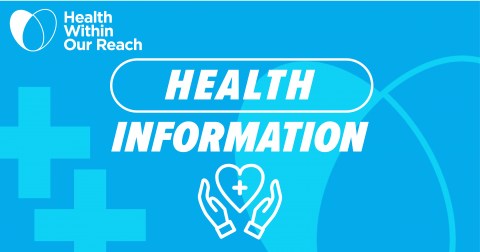Mayo 13, 2024
New recommendations for respiratory illnesses: facts you should not miss if you are a worker in the United States.

At the beginning of March 2024, the Centers for Disease Control and Prevention (CDC) updated its recommendations to prevent the contagion of respiratory viruses in the United States, mainly COVID-19. CDM knows the challenges facing migrant workers when accessing medical care, or the questions they might have, therefore we find it important to share this information.
We are four years into the pandemic. Surely you have noticed many changes in policy and recommendations, as we gain new knowledge about this virus. We have learned about the disease, but also about the strength and solidarity in sharing care and useful information with our communities, particularly those still facing challenges in accessing health services. In summary, what are the CDC updates?
COVID-19 remains a public health threat, but it is no longer considered an emergency.
Hospitalization and death rates have declined, and COVID-19 symptoms have become similar to—or even less severe than—those of the flu and RSV.
Unlike in the early years of the pandemic, when COVID-19 was nearly the only respiratory virus causing illness, it is now one of many. CDC is focusing its guidance on basic measures that provide the most protection against several respiratory viruses, including COVID-19, influenza, or Respiratory Syncytial Virus (RSV).
The importance of staying at home and away from others when sick with respiratory viruses is emphasized, regardless of the virus, as well as additional preventive actions.
Unifying the recommendations could make it easier for people to follow them, and prevent the spread of all these diseases, without waiting to be tested to identify whether or not they are positive for any of them.
The new guide includes information on prevention, treatment, and risk factors, among others, but one of the most important changes is the time to return to normal activities.
Before this modification, it was recommended that a person with COVID-19 symptoms should isolate for a minimum of five days and take precautions in the days following the isolation period. Now, the guidelines recommend that a person with respiratory illness symptoms stay at home isolated, and return to normal activities 24 hours after symptoms are resolved, if no fever has developed, or if no medication has been taken to lower it.
However, even if you return to normal activities quickly (such as working or being in crowded places), you must continue to take measures to reduce contagion for the next five days. For example:
Improve the ventilation of the places where you are,
Test.
Have you identified these changes in your community? Write or call us to share your experience.
Contact Centro de los Derechos del Migrante.
From Mexico: 800 590 1773
From the United States: 1 855 234 9699
